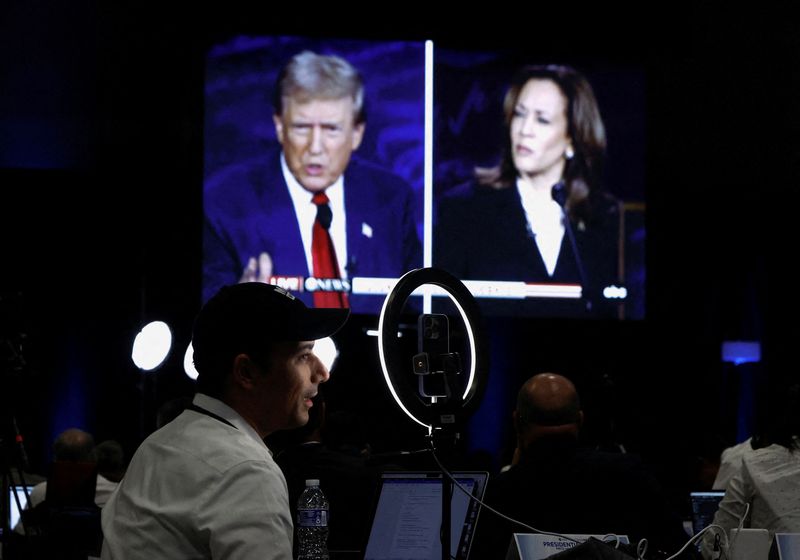Investing.com — As the U.S. election draws near, tariffs and taxes have emerged as key issues with implications for the stock market, particularly in the retail sector, as per analysts at Wells Fargo.
Tariff policies are expected to be a major determinant for retail stock performance, with the candidates offering divergent approaches.
Former President Trump has proposed imposing tariffs of 10-20% on most imports, with specific levies on Chinese imports that could reach as high as 60%.
This rhetoric has already stirred concerns across consumer companies, especially those heavily reliant on imports from China.
The ability of companies to absorb or pass on these increased costs varies, making the election outcome a pivotal factor for many retail stocks.
In contrast, Kamala Harris is expected to maintain policies more aligned with the Biden administration, which has already increased tariffs on select products such as steel and aluminum.
The exact stance on broader tariffs remains unclear but is likely to offer more continuity than disruption.
Wells Fargo analysts warn that any escalation in tariffs could further strain geopolitical relationships, particularly with China, exacerbating uncertainties for U.S. companies that depend on Chinese imports.
Key retailers such as Dollar Tree (NASDAQ:DLTR) and Five Below (NASDAQ:FIVE) are noted as being particularly vulnerable due to their reliance on fixed pricing and limited ability to adjust for rising import costs.
Taxes also play a crucial role in shaping the future landscape for both corporate profits and consumer spending. Trump has pledged to reduce the corporate tax rate from 21% to 20%, with an even lower 15% rate for domestic manufacturers.
Harris, on the other hand, has proposed raising the corporate tax rate to 28%, a move that would unwind much of the tax relief introduced under the Trump administration’s Tax Cuts and Jobs Act.
Wells Fargo analysts note that while higher taxes under Harris may pose challenges for large corporations, small businesses could benefit from her plan to expand the small business tax deduction from $5,000 to $50,000. This could potentially create competitive shifts in sectors like retail and food service.
On the individual tax front, both candidates offer proposals that could impact consumer spending, particularly among lower-income households.
Harris has suggested expanding the Earned Income Tax Credit and restoring elements of the American Rescue Plan’s Child Tax Credit expansion.
Meanwhile, Trump has floated a range of ideas, including the removal of taxes on tips, overtime pay, and social security.
Wells Fargo suggests that low-income consumers, who often have lower savings rates, would likely benefit from these proposals, driving increased spending in sectors like retail and food services.
Stocks such as Walmart (NYSE:WMT) and Dollar General (NYSE:DG), which cater to lower-income consumers, could see positive outcomes if stimulus measures are enacted.
Going forward, corporate tax changes could have a direct impact on stock earnings. For example, under Harris’ proposed tax increase, earnings estimates for some companies could decline by as much as 10%, while Trump’s lower corporate tax rate would provide a smaller, yet positive, boost to earnings.
The outcome of the election will not only affect taxes and tariffs but also influence broader policies on housing, labor, and energy, all of which could further sway consumer spending and corporate profitability.



